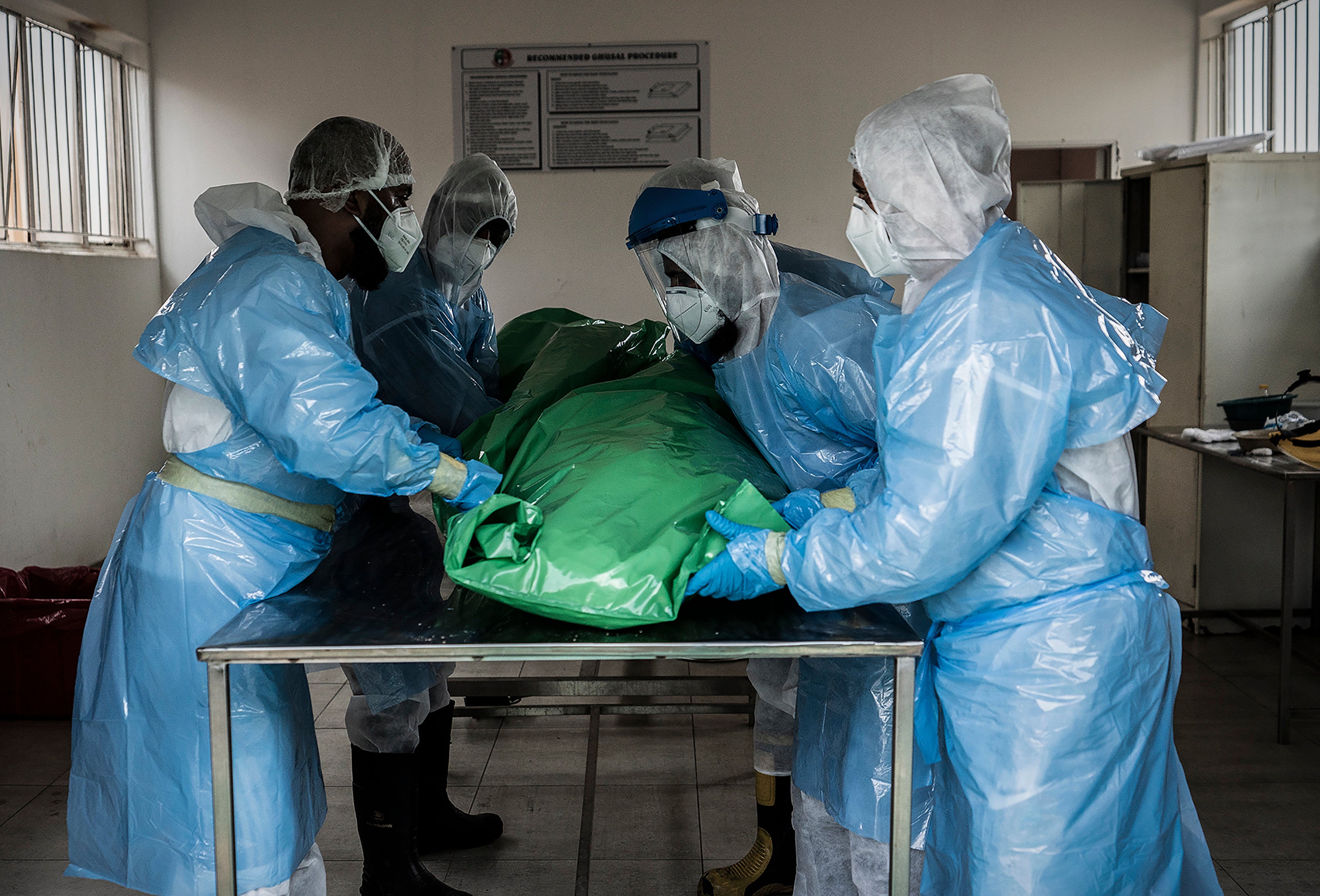Near 1 million virus cases, South Africa weighs restrictions
As South Africa’s current spike of COVID-19 has taken the country to nearly 1 million confirmed cases, President Cyril Ramaphosa called an emergency meeting on Sunday of the National Coronavirus Command Council

Your support helps us to tell the story
From reproductive rights to climate change to Big Tech, The Independent is on the ground when the story is developing. Whether it's investigating the financials of Elon Musk's pro-Trump PAC or producing our latest documentary, 'The A Word', which shines a light on the American women fighting for reproductive rights, we know how important it is to parse out the facts from the messaging.
At such a critical moment in US history, we need reporters on the ground. Your donation allows us to keep sending journalists to speak to both sides of the story.
The Independent is trusted by Americans across the entire political spectrum. And unlike many other quality news outlets, we choose not to lock Americans out of our reporting and analysis with paywalls. We believe quality journalism should be available to everyone, paid for by those who can afford it.
Your support makes all the difference.As South Africa s COVID-19 spike has taken the country to nearly 1 million confirmed cases President Cyril Ramaphosa called an emergency meeting on Sunday of the National Coronavirus Command Council.
The country's new variant of the coronavirus, 501.V2, is more contagious and has quickly become dominant in many areas of the resurgence, according to experts.
With South Africa's hospitals reaching capacity and no sign of the new surge reaching a peak, Ramaphosa is expected to announce a return to restrictive measures designed to slow the spread of the disease.
“We are not helpless in the face of this variant,” infectious disease specialist Dr. Richard Lessells told The Associated Press. “We can change our behavior to give the virus less opportunities to spread.” He said it's most important to avoid contact with others in indoor, enclosed spaces.
With a cumulative total of 994,911 confirmed cases of COVID-19, South Africa is expected to exceed 1 million cases when new figures are released late Sunday. That number includes including 26,521 deaths.
“One million cases is a serious milestone, but the true number of cases and deaths is almost certainly much higher,” Lessells said.
“We have seen the new variant spread rapidly,” he said, pointing out that genomic sequencing shows it has become dominant in the coastal provinces of Western Cape, Eastern Cape and KwaZulu-Natal. It is not yet certain if the variant is as dominant in the inland Gauteng province, which includes Johannesburg and is the country's most populous province.
“As people return from holidays at coastal areas, we can expect them to bring the variant with them,” said Lessells. “We can also expect travelers to take the variant with them across the borders to other African countries.”
The mutation of the COVID-19 virus has made it bind more efficiently to cells within our bodies, say experts.
Vaccinations haven't yet reached South Africa, although Ramaphosa has said that he expects 10% of the country's 60 million people to be inoculated in the first months of 2021.
South Africa's seven-day rolling average of daily new cases has nearly doubled over the past two weeks from 10.24 new cases per 100,000 people on Dec. 12 to 19.86 new cases per 100,000 people on Dec. 26. The number of deaths has also nearly doubled with the seven-day rolling average of daily deaths in South Africa has risen over the past two weeks from 0.25 deaths per 100,000 people on Dec. 12 to 0.48 deaths per 100,000 people on Dec. 26.